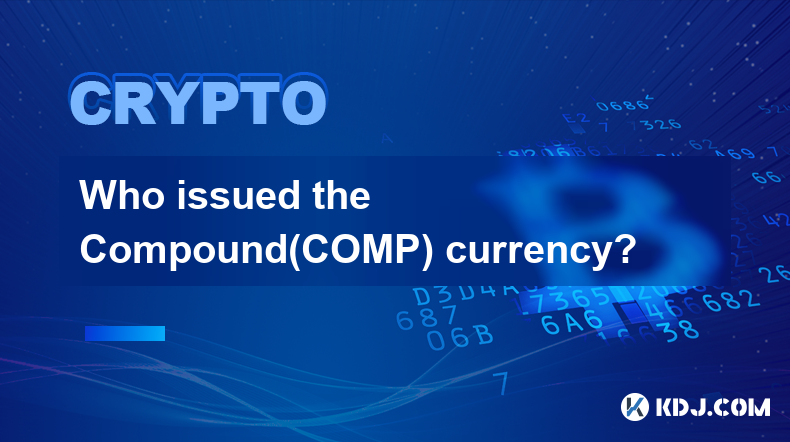-
 Bitcoin
Bitcoin $99,261.3321
2.55% -
 Ethereum
Ethereum $1,927.9171
5.16% -
 Tether USDt
Tether USDt $1.0002
0.02% -
 XRP
XRP $2.1927
2.57% -
 BNB
BNB $613.6745
1.35% -
 Solana
Solana $151.7212
3.48% -
 USDC
USDC $1.0002
0.00% -
 Dogecoin
Dogecoin $0.1823
5.39% -
 Cardano
Cardano $0.7099
4.17% -
 TRON
TRON $0.2501
2.32% -
 Sui
Sui $3.6507
7.37% -
 Chainlink
Chainlink $14.6951
5.74% -
 Avalanche
Avalanche $20.8248
4.82% -
 Stellar
Stellar $0.2711
3.99% -
 Bitcoin Cash
Bitcoin Cash $420.2704
12.70% -
 UNUS SED LEO
UNUS SED LEO $8.8083
0.88% -
 Shiba Inu
Shiba Inu $0.0...01337
4.22% -
 Hedera
Hedera $0.1844
4.09% -
 Toncoin
Toncoin $3.1249
3.75% -
 Hyperliquid
Hyperliquid $21.7531
2.73% -
 Litecoin
Litecoin $93.0605
0.85% -
 Polkadot
Polkadot $4.2297
6.45% -
 Dai
Dai $1.0003
0.02% -
 Monero
Monero $284.3093
-1.38% -
 Bitget Token
Bitget Token $4.3058
-0.29% -
 Ethena USDe
Ethena USDe $1.0004
0.01% -
 Pi
Pi $0.6267
7.81% -
 Pepe
Pepe $0.0...08878
9.10% -
 Bittensor
Bittensor $402.2103
9.12% -
 Uniswap
Uniswap $5.1910
5.19%
Who issued the Compound(COMP) currency?
Compound's decentralized lending protocol utilizes the COMP token for governance, distribution, and incentivization, with 40% of its supply initially distributed and the remaining ongoingly awarded to liquidity providers, borrowers, and stakeholders.
Dec 06, 2024 at 10:50 pm

Who Issued the Compound (COMP) Currency?
Introduction:
Compound is a decentralized lending protocol on the Ethereum blockchain that allows users to borrow and lend cryptocurrencies. The protocol's native token, COMP, plays a crucial role in its governance and distribution. This article delves into the issuance and distribution of COMP, exploring its origins, mechanism, and allocation.
COMP Issuance:
Initial Distribution:
Compound's team conducted an initial distribution of COMP tokens in June 2020. The distribution aimed to incentivize early adoption of the protocol and reward users who provided liquidity to the platform. Approximately 40% of the total COMP supply was distributed during this phase.
Ongoing COMP Distribution:
Since the initial distribution, COMP has been continuously distributed to users who interact with the protocol. Users earn COMP by:
- Supplying assets to lending pools
- Borrowing assets and paying interest
- Delegating COMP tokens to governance delegates
COMP Allocation:
Team and Advisors:
- 23% of the total COMP supply was allocated to the Compound team and advisors. This allocation aimed to compensate them for their contributions to the protocol's development and maintenance.
Investors:
- 13% of the COMP supply was allocated to investors who funded Compound's early development. Strategic investors and venture capital firms participated in financing rounds to support the protocol's growth.
Liquidity Providers and Borrowers:
- 64% of COMP was distributed to liquidity providers and borrowers who actively used the protocol. This distribution incentivized users to participate in lending and borrowing activities, fostering the protocol's liquidity and utilization.
Governance Mechanism:
COMP token holders play a crucial role in the governance of the Compound protocol. Through the COMP governance mechanism, they can propose and vote on proposals that affect the development and operations of the protocol. COMP holders can:
- Propose Changes:
COMP holders can submit governance proposals for consideration by the community. These proposals may relate to protocol parameters, feature enhancements, or other aspects of the Compound ecosystem. - Vote on Proposals:
COMP holders can vote on active governance proposals to support or oppose the proposed actions. The number of COMP tokens held by each voter determines their voting power. - Elect Governance Delegates:
COMP holders can delegate their voting power to governance delegates. These delegates are community members who act on behalf of their supporters in the governance process.
Conclusion:
Compound's COMP token plays a significant role in the governance, distribution, and incentivization of the protocol's activities. Its issuance through initial distribution and ongoing rewards for user participation ensures the continuous engagement and liquidity within the Compound ecosystem. The COMP governance mechanism further empowers the community to participate in the shaping of the protocol's future.
Disclaimer:info@kdj.com
The information provided is not trading advice. kdj.com does not assume any responsibility for any investments made based on the information provided in this article. Cryptocurrencies are highly volatile and it is highly recommended that you invest with caution after thorough research!
If you believe that the content used on this website infringes your copyright, please contact us immediately (info@kdj.com) and we will delete it promptly.
- Worldcoin Temporarily Suspended in Indonesia, Ordered to Delete Biometric Data in Kenya
- 2025-05-08 16:05:14
- BTC Price Jumps 2% to Trade at $98,761.37 as of 10:18 p.m. EST
- 2025-05-08 16:05:14
- Bitcoin [BTC] briefly retested $97K
- 2025-05-08 16:00:27
- No Data is Safe – E-Commerce's Leaky Practices Cost $48 Billion a Year, This ICO is Changing that
- 2025-05-08 16:00:27
- Bitcoin zoomed close to $100,000
- 2025-05-08 15:55:13
- Trending Crypto Presale Projects
- 2025-05-08 15:55:13
Related knowledge

Is Ethereum smart contract call fee high? How to optimize costs?
May 08,2025 at 09:35am
Is Ethereum Smart Contract Call Fee High? How to Optimize Costs? The world of Ethereum smart contracts has revolutionized the way we think about decentralized applications and blockchain technology. However, one of the most frequently discussed topics within this realm is the cost associated with executing smart contract calls. In this article, we will ...

Is Ethereum Layer2 fee low? How to use it cheaper?
May 08,2025 at 03:56am
The question of whether Ethereum Layer 2 solutions offer lower fees and how to use them more economically is a topic of great interest within the cryptocurrency community. Ethereum's Layer 2 solutions have been developed to address the high transaction fees and scalability issues associated with the main Ethereum network. In this article, we will delve ...

How to calculate Ethereum network fee? How to reduce transaction costs?
May 08,2025 at 02:15am
Understanding and managing Ethereum network fees is crucial for anyone involved in transactions on the Ethereum blockchain. The network fee, also known as gas fee, is the amount of Ether (ETH) required to successfully conduct a transaction or execute a smart contract on the Ethereum network. Calculating these fees and finding ways to reduce them can sig...

What is Ethereum Gas Fee? How to optimize Gas Fee to save costs?
May 08,2025 at 03:43am
Ethereum gas fees are a crucial aspect of interacting with the Ethereum blockchain. Understanding and optimizing these fees can significantly impact the cost-effectiveness of transactions and smart contract interactions. In this article, we will delve into what Ethereum gas fees are, how they are calculated, and provide detailed strategies for optimizin...

How to perform MOVE cross-chain transfer? What to do if the gas fee is too high?
May 07,2025 at 08:03pm
Introduction to MOVE Cross-Chain TransferCross-chain transfers have become an essential part of the cryptocurrency ecosystem, allowing users to move assets between different blockchain networks. One of the popular protocols for achieving this is the MOVE cross-chain transfer. This article will guide you through the process of performing a MOVE cross-cha...

How is the DYDX liquidation price calculated? How is the forced liquidation mechanism?
May 08,2025 at 06:49am
The DYDX liquidation price and the forced liquidation mechanism are crucial aspects of trading on the dYdX platform, a decentralized exchange that allows users to trade perpetual contracts. Understanding these concepts is essential for managing risk and maximizing potential returns. In this article, we will delve into the details of how the DYDX liquida...

Is Ethereum smart contract call fee high? How to optimize costs?
May 08,2025 at 09:35am
Is Ethereum Smart Contract Call Fee High? How to Optimize Costs? The world of Ethereum smart contracts has revolutionized the way we think about decentralized applications and blockchain technology. However, one of the most frequently discussed topics within this realm is the cost associated with executing smart contract calls. In this article, we will ...

Is Ethereum Layer2 fee low? How to use it cheaper?
May 08,2025 at 03:56am
The question of whether Ethereum Layer 2 solutions offer lower fees and how to use them more economically is a topic of great interest within the cryptocurrency community. Ethereum's Layer 2 solutions have been developed to address the high transaction fees and scalability issues associated with the main Ethereum network. In this article, we will delve ...

How to calculate Ethereum network fee? How to reduce transaction costs?
May 08,2025 at 02:15am
Understanding and managing Ethereum network fees is crucial for anyone involved in transactions on the Ethereum blockchain. The network fee, also known as gas fee, is the amount of Ether (ETH) required to successfully conduct a transaction or execute a smart contract on the Ethereum network. Calculating these fees and finding ways to reduce them can sig...

What is Ethereum Gas Fee? How to optimize Gas Fee to save costs?
May 08,2025 at 03:43am
Ethereum gas fees are a crucial aspect of interacting with the Ethereum blockchain. Understanding and optimizing these fees can significantly impact the cost-effectiveness of transactions and smart contract interactions. In this article, we will delve into what Ethereum gas fees are, how they are calculated, and provide detailed strategies for optimizin...

How to perform MOVE cross-chain transfer? What to do if the gas fee is too high?
May 07,2025 at 08:03pm
Introduction to MOVE Cross-Chain TransferCross-chain transfers have become an essential part of the cryptocurrency ecosystem, allowing users to move assets between different blockchain networks. One of the popular protocols for achieving this is the MOVE cross-chain transfer. This article will guide you through the process of performing a MOVE cross-cha...

How is the DYDX liquidation price calculated? How is the forced liquidation mechanism?
May 08,2025 at 06:49am
The DYDX liquidation price and the forced liquidation mechanism are crucial aspects of trading on the dYdX platform, a decentralized exchange that allows users to trade perpetual contracts. Understanding these concepts is essential for managing risk and maximizing potential returns. In this article, we will delve into the details of how the DYDX liquida...
See all articles
























![[2025.05.08] The two routes of Bitcoin continue to be observed, and gold is still bullish. [2025.05.08] The two routes of Bitcoin continue to be observed, and gold is still bullish.](/uploads/2025/05/08/cryptocurrencies-news/videos/routes-bitcoin-continue-observed-gold-bullish/image_500_375.webp)




























































